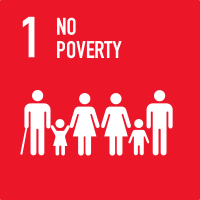Studying at the University of Verona
Here you can find information on the organisational aspects of the Programme, lecture timetables, learning activities and useful contact details for your time at the University, from enrolment to graduation.
Study Plan
This information is intended exclusively for students already enrolled in this course.If you are a new student interested in enrolling, you can find information about the course of study on the course page:
Laurea in Scienze del servizio sociale - Enrollment from 2025/2026The Study Plan includes all modules, teaching and learning activities that each student will need to undertake during their time at the University.
Please select your Study Plan based on your enrollment year.
1° Year
| Modules | Credits | TAF | SSD |
|---|
2° Year activated in the A.Y. 2024/2025
| Modules | Credits | TAF | SSD |
|---|
3° Year It will be activated in the A.Y. 2025/2026
| Modules | Credits | TAF | SSD |
|---|
1 module between the following| Modules | Credits | TAF | SSD |
|---|
| Modules | Credits | TAF | SSD |
|---|
| Modules | Credits | TAF | SSD |
|---|
1 module between the followingLegend | Type of training activity (TTA)
TAF (Type of Educational Activity) All courses and activities are classified into different types of educational activities, indicated by a letter.
Legislation and administration of social services (2024/2025)
Teaching code
4S02351
Teacher
Coordinator
Credits
6
Language
Italian
Scientific Disciplinary Sector (SSD)
IUS/10 - ADMINISTRATIVE LAW
Period
Sem. 1A, Sem. 1B
Courses Single
Authorized
Learning objectives
General Learning outcomes Knowledge and understanding - Knowledge and understanding of the rules governing social services organizations - Knowledge and understanding of the main legal instruments made available to social workers by their institutions Ability to apply knowledge and understanding - Ability to integrate their professional work with the main aims of their institutions - Ability to make full use of the legal instruments made available by their institutions - Ability to know and respect the limits given by the legal apparatus to their actions - Ability to write a social work report SPECIFIC OBJECTIVES The objective of the course is to provide students with the fundamental concepts necessary in order to identify, understand and critically analyze the various legislation (constitutional law, primary law, regulations) governing social services, and consequently to ascertain the limits imposed by the law on the professional action by social workers. In particular, the course will impart basic legal knowledge regarding the structure and functioning of (public) social services organizations, the tasks and functions of social workers (for example, the preparation of action plans and social reports) as well as the legal instruments available in order to perform those tasks and functions, and the relationship between the social worker and the institution of origin.
Prerequisites and basic notions
From the degree course regulations
Program
I. The sources of social services law. II. The integrated system of interventions and social services in the Constitution and in law 328/2000. III. (The categories of) subjects entitled to social assistance. IV. The benefits covered by the right to social assistance. V. Public administrations and private entities providing social welfare services V.1 Institutional structure and organization of the integrated system of social services VI. The social professions. VI.1. The social worker. VI.2. The protection of confidentiality in social work. VII. Sector legislation: outline
Bibliography
Didactic methods
Face-to-face lessons.
Learning assessment procedures
The exam consists of a written test
Evaluation criteria
test evaluation criteria are: - knowledge and understanding of the subject; - clarity, logical order, use of an adequate and correct technical vocabulary during presentation; - ability to systematically organize legal institutions; - ability to highlight common elements and elements of difference between legal institutions; - ability to solve some elementary concrete cases.
Criteria for the composition of the final grade
Balanced weighting of evaluation criteria
Exam language
Italiano




